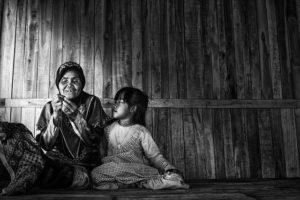From the Health and Human Rights Journal: “Relationships matter. Relationships—the vital connections between individuals, families, communities, and with the natural environment, throughout the course of our lives—are a foundational precondition for our health and well-being. Access to a psycho-social and social environment that fosters respectful relationships is a human right, as outlined by the UN Special Rapporteur [for] health, Dainius Pūras, in his latest report to the Human Rights Council.
Presented today in Geneva, this report is the first examination of the multiple ways in which human rights, including the right to health, intersect with the determinants of mental health and well-being. Almost two decades after General Comment 14 established and began to elaborate on the centrality of determinants in the full and effective realisation of the right to health, the Special Rapporteur’s latest report builds on this important public health and human rights discussion . . .
Global attention has been focused on the insufficient funding directed to mental wellbeing, which has led to calls for enough funding to close the treatment gap for everyone experiencing psycho-social difficulties. While acknowledging the importance of increasing funding for wellbeing, in this report the Special Rapporteur also urges action on structural factors that can produce mental distress. These include violence, discrimination, social exclusion, poverty, excessive criminalisation, xenophobia, harmful ‘traditional family values’, coercive and paternalistic healthcare systems, and retrogressive policies that constrain civil society from building spaces for participation and accountability for all.
The report stresses the importance of the interdependence of human rights, and is critical of policy approaches that are selective of human rights. For example, the report identifies various situations where rights are provided selectively and harm results: a labour force with access to counselling but denied labour rights; a child confined to an institution even though they have access to food and shelter; communities of people who uses drugs criminalised and/or coerced into treatment remain deprived of dignity; a single mother with the freedom to work but without access to healthcare, family or sick leave; an individual with psycho-social disabilities languishing in a coercive and violent healthcare facility; communities of individuals living in poverty subjected to the retrogressive, bureaucratic violence of austerity. A range of structural barriers, including inequalities and discrimination, produce negative mental health outcomes—especially for those experiencing multiple and intersecting forms of oppression. The report stresses the importance of holistic, rights-based responses to overcome these oppressions that lead to mental distress.
Positive social relationships that protect and improve population-level mental health are outlined. Policy action that improves resilience and fosters trust, gives a holistic expression to the right to health outside the healthcare sector. All relationships in society are shaped by wider social, economic, political, and cultural forces that States have an obligation to ensure are consistent with right to health obligations under international law.”












